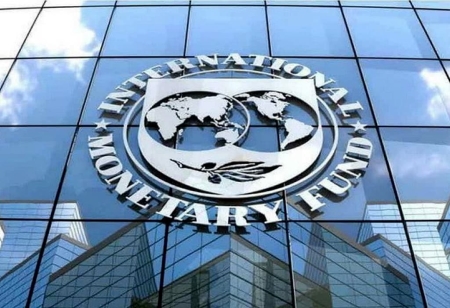
India And China To Contribute For Half Of Global Growth: IMF

 The IMF head warned on Thursday that the global economy will grow by less than 3% this year, with India and China set to account for half of global growth by 2023.
The IMF head warned on Thursday that the global economy will grow by less than 3% this year, with India and China set to account for half of global growth by 2023.
Kristalina Georgieva, managing director of the International Monetary Fund (IMF), warned that the world economy's dramatic slowdown last year as a result of the growing pandemic and Russia's armed invasion of Ukraine will continue this year.
The IMF head also stated that the global economy has contracted from 3.4% last year, raising the risk of global hunger and poverty.
Kristalina Georgieva predicted that the period of reduced economic activity will last longer, with growth maintaining around 3% over the next five years, calling it "our lowest medium-term growth forecast since 1990" and significantly below the two-decade average of 3.8%.
"Some momentum is generated by emerging economies." Asia, in particular, is a bright spot. In 2023, India and China are predicted to contribute for half of global growth. Others, though, have a more difficult climb," she added.
Following a robust recovery in 2021, Russia's war in Ukraine and its far-reaching ramifications hit hard. "Global growth in 2022 will be cut in half, from 6.1 percent to 3.4 percent," Georgieva added.
Slower growth, according to Georgieva, would be a "severe blow," making it even more difficult for low-income countries to catch up. "Poverty and hunger could worsen, a dangerous trend sparked by the COVID crisis," she added.
Her remarks came ahead of the IMF and World Bank's spring meetings next week, where policymakers will gather to examine the global economy's most urgent concerns. The annual meeting will take place as central banks across the world continue to boost interest rates in order to slow the rate of inflation.
According to her, over 90% of advanced economies' growth rates are expected to fall this year.
Higher borrowing rates for low-income nations come at a time when demand for their products is declining, she added. According to the IMF, over 15% of low-income nations are currently in financial trouble, while another 45% risk significant debt vulnerabilities.
High interest rates, a string of bank failures in the United States and Europe, and widening geopolitical differences, according to Georgieva, are endangering global financial stability.
While the global banking system has "come a long way" since the 2008 financial crisis, "concerns remain about vulnerabilities that may be hidden, not just at banks but also at non-banks," Georgieva said.
All of this comes as the United States, the European Union, and others reconsider their trading relations with China.
Tensions with China accelerated after Russia's invasion of Ukraine in February 2022, with Chinese President Xi Jinping pledging a friendship without limits to Russian President Vladimir Putin.
Georgieva warned in her speech: "But the path ahead and especially the path back to robust growth is rough and foggy, and the ropes that hold us together may be weaker now than they were just a few years ago."
"Now is not the time to be complacent," she said.